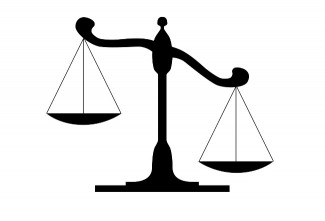
“An imbalance between rich and poor is the oldest and most fatal ailment of all republics.” ~ Plutarch
By Catherine Austin Fitts
As Congressional members increasingly focus on this year’s mid-term elections, we are seeing ever more articles and editorials on income inequality. From scientific journals to daily editorials everyone has a theory about the causes of growing income inequality in the Western world.
Interest in income has been inspired by the recent fall of incomes combined with the steady rise in the prices of household necessities in the developed world combined with fears regarding what new technology and automation may do to exacerbate the continued “slow burn” squeeze on the middle class.
However, rather than focusing on the domestic issue, our opportunity is to consider our domestic economic issues as part of the global rebalancing that has been going on for the last two decades.
To continue reading Catherine’s commentary on current events subscribe to The Solari Report here. Subscribers can log in to finish reading here.
The greatest inequalities are not those between the rich and poor in the G-7 nations, but rather between the rich and poor globally. We are, after all, one group of humans on one planet, namely earth. The inhumanity of poverty is a concern to all us. Certainly, that inhumanity is very much a part of the tensions flaming geopolitical tensions from the Ukraine to the South China Sea.
I strongly recommend our recent discussion with Steve Roach about his excellent new book Unbalanced: The Codependency of America and China. The US has been consuming, China has been producing. Now as China reforms and begins to build its service and consumer sectors, we must increase our productivity while reducing our consumption.
While the news is full of anger as to the tactics being used to reduce consumption, the reality is that the most helpful response is to put alternatives on the table. Like publishing the US budget by place with GIS software tools Like using participatory budgeting to reengineer government credit, spending and regulation by place. Like allowing equity capital to flow to small business through crowdfunding. Like seeing what the maker movement offers us to reinvent what we can do for ourselves; and on and on. The Solari Report archives are full of hundreds of ideas designed to help with those that inspire and serve you.
As my good friend Jon Rappoport pointed out in his latest and very magnificent speech at the Secret Space Program, all this all starts with you and me.
I am well served to continuously increase my productivity and savings and reduce my consumption in a continuous virtuous spiral until I have extinguished my opportunities to do so.
I am reminded of the story of Sir Winston Churchill when he was told that if the huge auditorium hall in which he was standing to receive an award was to be filled with all the alcoholic beverages he had consumed in his life, it would fill the room halfway. Churchill apparently looked at the speaker, then at the ceiling and quietly said:
“So far to go, so little time.”

